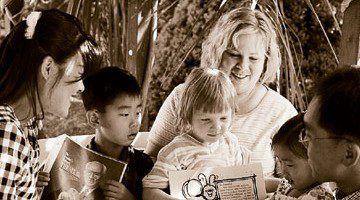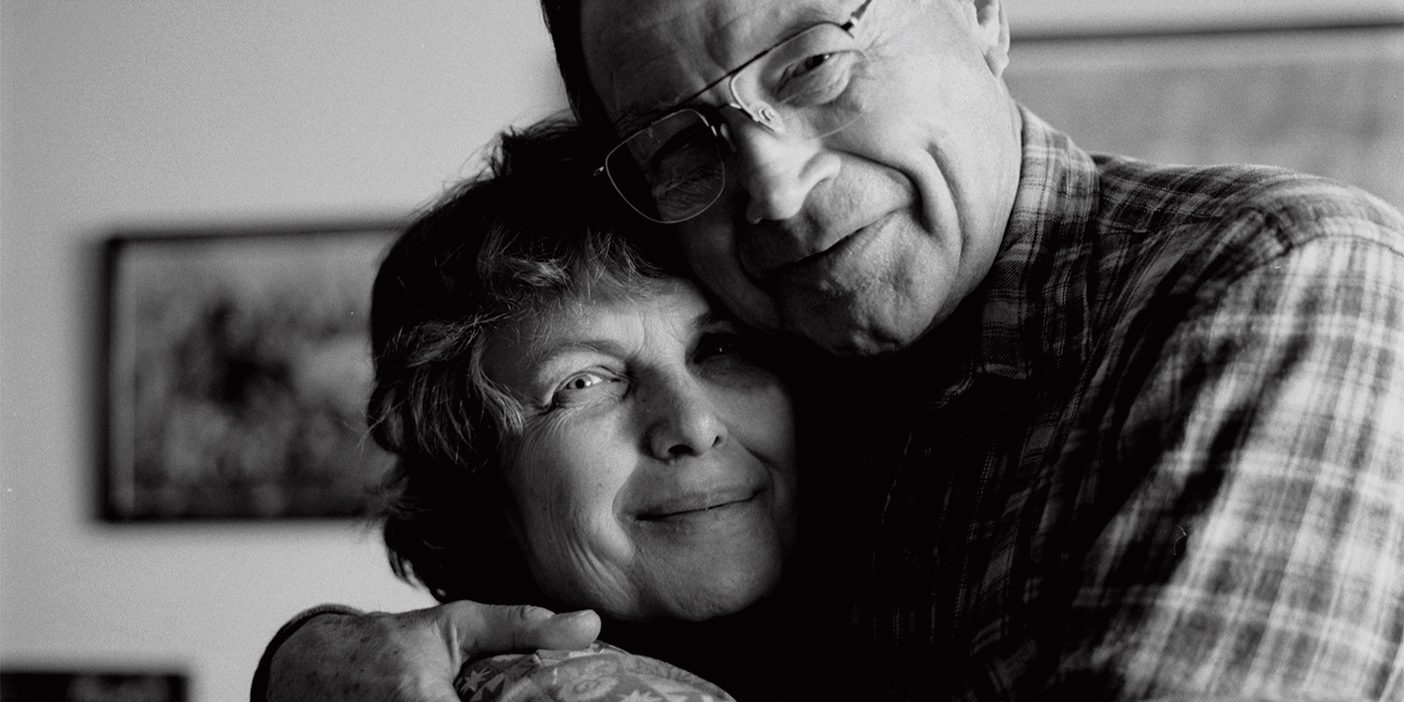By Carmen Cole
With divorce rates high and more marriages in trouble than ever before, many are trying to nip marital problems in the bud–before the marriage even starts. Premarital counseling is a trend grabbing hold across the nation, and BYU is among those leading the fight for happy, enduring marriages.
“I’m trying to do everything I can to lower the divorce rate,” says Robert Stahmann, professor of family sciences at BYU. Brent Barlow, associate professor of family sciences, agrees. “I just want to join others in helping promote stable marriages,” he says. “We’re in the marriage-saving business. We’re divorce busters.”
Premarital counseling is a process, Stahmann says, ideally entered into several months before marriage, where counselors work with couples to make them aware of issues and potential problem areas–such as values, financial expectations, roles, or intimacy–that could affect their marriage.
“Premarital counseling is a process whereby people are learning about themselves a little bit, but more about the relationship and each other, and maybe tasks or dimensions of the marriage that they’re going to experience, before they experience it,” Stahmann says. “Couples are there to enhance their relationship. It’s not a screening process.”
Historically, most premarital counseling has been done by clergy, Stahmann says. In one study, he found that 94 percent of clergy from 44 states and six different Protestant denominations want premarital counseling to become mandatory for engaged couples.
BYU has long offered family science classes such as marriage preparation, marriage enhancement, and parenting and has offered individual premarital counseling for about 30 years. Most recently, BYU has added group premarital workshops, a Marriage Resource Center, and an inventory test.
When he first came to BYU in 1975, Stahmann says a marriage and family therapy clinic on campus was offering premarital counseling in the form of an evening lecture here and there and one-on-one counseling with couples. While lectures and counseling still continue, the trend has moved toward group counseling.
“In the old days there used to be a stigma attached to any kind of mental health counseling, but now there isn’t,” Stahmann says. “Now we put an ad in the paper or distribute a flyer, and people come in.”
In group counseling conducted at BYU’s Comprehensive clinic, three to six couples (sometimes more) meet with two counselors (a male and female) once a week for six to eight weeks to discuss their relationship, expectations, and hopes. Graduate interns conduct the counseling workshops year-round under Stahmann’s supervision.
One advantage to the small, structured group is that couples not only identify their own struggles, but also see the challenges other couples face. “There’s a kind of wonderful sharing that goes on when you get some of these couples together and they talk about their fears or apprehensions, and they’re finding out, ‘We’re not that different from other couples with the issues we’re facing,'” Stahmann says.
The couples in the group sessions say they prefer it over individual counseling. Couples fill out a survey at the end of the workshop, and Stahmann says in the group that finished in April, all the participants indicated they would recommend the class to a friend and would take the workshop over again. “It’s not scary, and people find it useful,” he says.
Another way BYU is leading in premarital counseling is through an inventory test created by the Marriage Study Consortium–a group of scholars primarily made up of BYU faculty.
Released in May 1997, RELATE takes an inventory of the couple’s premarital relationship by asking each person about values, expectations, personality dimensions, the type of relationship they have, family background, and, on some tests, financial readiness. The test addresses the same issues discussed in premarital counseling, but the results go directly to the couple rather than through a counselor.
RELATE’s precursor was an inventory called PrepM, which has been administered to more than 13,000 people at BYU, Notre Dame, Syracuse, and other universities nationwide, Stahmann says.
The Marriage Resource Center is the newest program to join the fight for happy, stable marriages. Barlow founded the Internet-based center (https://familycenter.byu.edu)after hearing a charge from President Gordon B. Hinckley to “reach out with a helping hand to those whose marriages have become troubled” (Speeches 199697 [Provo: Brigham Young University], pp. 2127).
“I just decided that we have too many good students and too many good resources just to keep it here on campus,” Barlow says. The center is designed to direct people to resources that can help their marriages. While Barlow and the students working with him cannot offer advice for legal reasons, they answer queries (submitted by phone or via the Internet) by helping people find other available resources.
The LDS Church’s beliefs and focus on families influences BYU’s emphasis on premarital counseling. Both professors say the Church’s “The Family: A Proclamation to the World” encouraged them in their field.
“That’s such a great statement,” Stahmann says. “It really solidifies what we know and what we’re teaching at BYU about the family.”
Both Barlow and Stahmann taught at other universities before coming to BYU. Although there is a national interest in marriage preparation, they cite a difference in the way premarital and marital counseling and teaching is approached at BYU. Stahmann says at other schools he had to be careful about the “M” word: marriage. He also couldn’t teach that chastity and fidelity strengthened a marriage.
Barlow cites the commonality of the gospel as a reason for the difference at BYU. “Family science courses are not supposed to be religion courses, but we are encouraged to integrate the gospel–and we should integrate gospel principles here at BYU,” he says.









